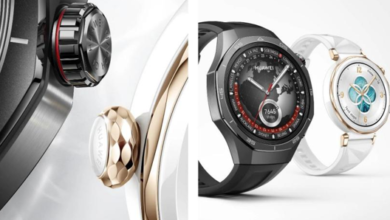Is a Projector Better Than a TV? The Ultimate Showdown

The debate between projectors and TVs is a classic home entertainment dilemma. For decades, televisions have been the undisputed centerpiece of the living room, but as projector technology has advanced in leaps and bounds, the choice is no longer so clear-cut. Both offer stunning 4K resolution, vibrant colors, and incredible features, yet they deliver fundamentally different viewing experiences.
So, is a projector better than a TV? The honest answer is: it depends. There is no single “best” option for everyone. The right choice for you hinges on your room, your viewing habits, your budget, and what you value most in a display. Are you chasing the unmatched scale of a true cinema, or do you need the bright, convenient punch of a traditional television? This guide will break down the strengths and weaknesses of each to help you decide which screen will reign supreme in your home.
The Case for Projectors: Unparalleled Scale and Immersion
The single greatest advantage of a projector is its ability to create a massive, truly cinematic image. While TVs top out around 100 inches at an astronomical cost, projectors can easily cast a brilliant 120, 150, or even 200-inch image for a fraction of the price per inch.
- Massive, Immersive Image: A projector is the only way to replicate the scale of a commercial movie theater at home. A giant screen fills your peripheral vision, pulling you into the action in a way no television can. This makes a 4K home theater projector the undisputed champion for movie lovers seeking the most immersive experience possible.
- Enhanced Eye Comfort: Projectors create an image by reflecting light off a screen, whereas TVs emit light directly toward your eyes. Many people find this reflected light to be softer and more natural, leading to less eye strain during long viewing sessions, like movie marathons or extended gaming binges.
- Flexible and Discreet: When not in use, a projector screen can be retracted, leaving a clean, uncluttered wall. The projector itself can be ceiling-mounted, making the entire system virtually disappear. This is a huge advantage for those who don’t want a giant black rectangle dominating their room’s decor.
- Portability: While not all projectors are portable, many compact models are, allowing you to easily set up an impromptu movie night in the backyard or take your entertainment on the road.
The Case for TVs: Brightness, Simplicity, and Versatility
Televisions have dominated the market for a reason: they are incredibly convenient, versatile, and deliver a phenomenal picture, especially in rooms where you can’t control the lighting.
- Superior Brightness and Contrast: This is the TV’s knockout punch. Modern TVs can get significantly brighter than projectors, allowing them to produce a vibrant, saturated image even in a sun-drenched living room. Their ability to produce deep, inky blacks, especially on OLED models, gives them a contrast advantage that makes HDR content pop with incredible realism.
- Plug-and-Play Setup: Setting up a TV is as simple as it gets. You take it out of the box, plug it in, and connect it to your Wi-Fi. A projector requires a more involved installation, including mounting, screen alignment, focusing, and connecting external audio and source components.
- All-in-One Solution: Smart TVs are self-contained entertainment hubs. They come with built-in speakers, streaming apps, and a TV tuner. A projector setup is inherently modular; you must purchase a separate sound system and often a streaming device to complete the package.
- Lower Overall Cost for Most People: While projectors win on a cost-per-inch basis for huge screens, a high-quality 65 or 75-inch 4K TV is often less expensive than a complete 4K home theater projector system of comparable quality once you factor in the cost of a screen and audio.
Key Battlegrounds: Performance in the Real World
How do these differences play out in practical scenarios? The best choice often becomes clear when you consider your primary use case.
Ambient Light Performance
This is the most critical deciding factor. In a dedicated, light-controlled dark room, a projector will thrive. But in a typical family room with windows and lamps, a TV will almost always provide a more watchable, punchy image during the day. While bright projectors and special ambient light-rejecting screens have narrowed the gap, they can’t fully defy the laws of physics—a TV’s direct light will always have an advantage over a projector’s reflected light in a bright environment.
Gaming Experience
This used to be an easy win for TVs, but the game has changed. The rise of the dedicated 4K gaming projector has brought features like low input lag and high refresh rates (120Hz and even 240Hz) to the big screen. For casual and single-player gaming, the sheer immersion of playing on a 120-inch screen is a transformative experience. For highly competitive online gaming, however, the absolute lowest input lag and pixel response times of a high-end gaming TV may still provide a slight edge.
Conclusion: Which Screen Is Your Champion?
The projector versus TV debate isn’t about which technology is objectively superior, but which is subjectively right for you. To make the final call, consider your priorities:
Choose a projector if:
- You crave the largest possible screen and a true cinematic experience.
- You have a room where you can control the lighting.
- Immersion is more important to you than absolute brightness.
- You want a display that can disappear when not in use.
Choose a TV if:
- You do most of your viewing in a bright or moderately lit room.
- You value plug-and-play simplicity and an all-in-one solution.
- You want the best possible HDR performance with maximum brightness and contrast.
- Your viewing will be primarily casual TV shows, news, and sports.
Ultimately, both platforms offer breathtaking picture quality. Whether you choose the immersive scale of a projector or the versatile brilliance of a TV, you’re guaranteed a spectacular window into your favorite worlds.






